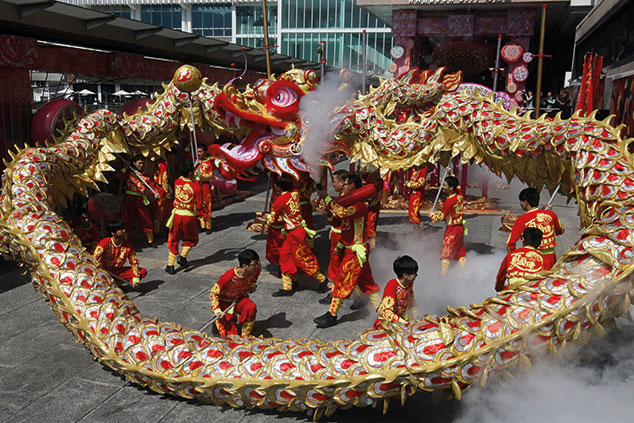
It’s worth putting in context that the growth of China’s debt “has been astonishingly rapid”, adds Warner. Although it may now have slowed down a bit, “China is most certainly not deleveraging”.
According to Gavekal Research the debt of listed firms has accelerated in 2017 and 2018. However, companies’ borrowings look manageable for now. The “corporate debt-servicing burden continues to decline, with profit growth still rapid and interest rates falling”. China’s overall debt is still lower than much of Europe’s. In addition, China’s infrastructure investment boom has lost steam this year, says the Economist, reflecting an attempt to “curb the country’s massive build-up of local-government debt”.
Shifting to services
Concerns about the trade war continue to weigh on investor sentiment towards Chinese stocks. Investors should keep in mind, however, that China is no longer the export-dependent country it once was now that it is transitioning to a consumption-based economy. Its large domestic market is driving growth and net trade is no longer so important. Overall, 52% of Chinese GDP is generated by the tertiary sector, notably commercial and public services, notes Gavekal Research.
According to UBS, the new US tariffs (at 25% on the $50bn tranche of Chinese goods imposed in July, and the additional 10% announced on $200bn of goods) will reduce Chinese GDP by a mere 0.5% over the next 12 months, says James Norrington in the Investors Chronicle. Furthermore, UBS believes the impact will be offset by supportive fiscal and monetary policy measures. The upshot? It has only marginally downgraded the forecast growth for China from 6.2% to 6% of GDP growth in 2019.
Time to go bargain-hunting?
The composition of the blue-chip index CSI 300 shows why the market impact of the trade war may be less significant than expected, say Joe Rennison and Gabriel Wildau in the Financial Times. Financials, which make up 46% of the index, are not directly affected by tariffs. Neither are industrials, which comprise 11.5%. Chinese stocks “are stuck between two opposing forces”, Frank Benzimra, head of Asia equity strategy at Societe Generale in Hong Kong, told the FT. Beijing’s deleveraging campaign and the escalating trade war “are weighing on earnings, but share prices have fallen so far that a major earnings downgrade is already priced in”. Stocks “are now a value trade”.